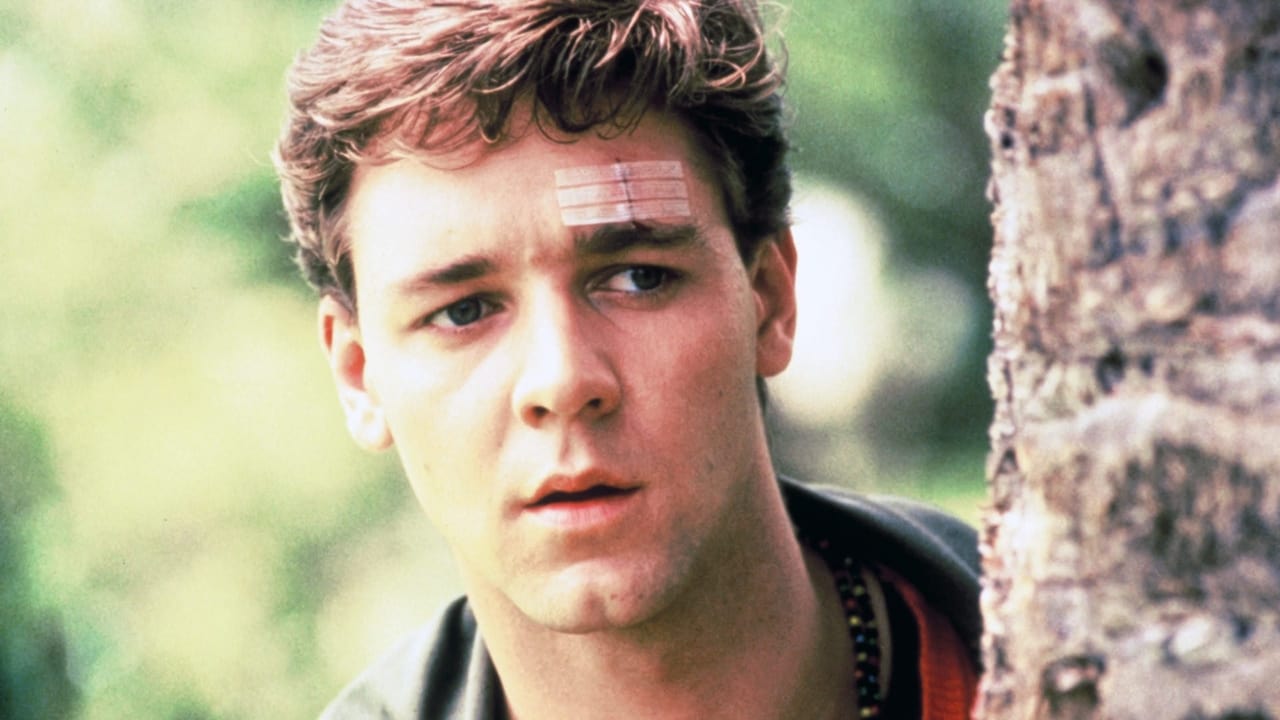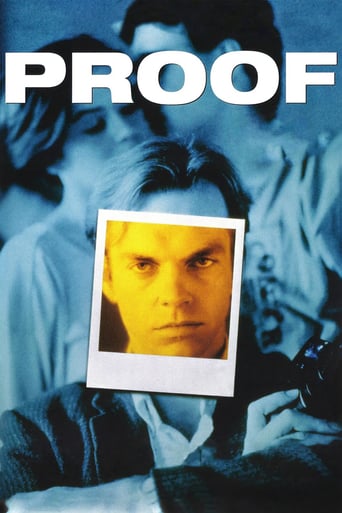Titreenp
SERIOUSLY. This is what the crap Hollywood still puts out?
Beystiman
It's fun, it's light, [but] it has a hard time when its tries to get heavy.
Huievest
Instead, you get a movie that's enjoyable enough, but leaves you feeling like it could have been much, much more.
Gurlyndrobb
While it doesn't offer any answers, it both thrills and makes you think.
zx_360
I just saw it and I'm so impressed with this movie. It's mostly a drama with some funny scenes (I literally laughed out loud at one scene particularly which i'm not going to spoil of course but you'll know it as you see it) about a blind man who takes photos (ironic isn't it?) and his relationship with his housekeeper and his new friend. As Russell Crowe one of my favorite actors I can't believe I haven't checked it out earlier, and he sure does a great supporting role but Hugo Weaving takes the prize for leading role in this movie. My only problem with this movie is that I thought it was too short, but like it is an independent film and all I give it a 9/10, watch whenever you can.
bandw
When I heard that this story involved a blind photographer my first reaction was, "I don't get it." So, one reason I watched this was to see how that premise could play out in any realistic way. And it does. Martin (Hugo Weaving) is the photographer; he takes photos and has people describe them to him. Dating to the relationship with his mother in childhood Martin has an industrial strength case of distrust.Celia (Geneviève Picot) is Martin's housekeeper and the relationship between Martin and Celia is the central focus of the movie. We don't get too far into it before we realize that Celia is deeply in love with Martin, a love that he does not reciprocate. This situation seems to be agreeable to both parties--in fact they appear to get a thrill out of thwarting each other. For example, Celia moves objects around the house just so Martin will crash into them.The game that Martin and Celia are playing is thrown off center when Andy (a young Russell Crowe) befriends Martin, and that is when things get interesting. Andy finds Martin's hobby curious and is happy to describe the photos for him. How Celia uses her sexuality to deal with her jealousy, how Martin uses his photos to deal with his trust problems, and how poor, innocent Andy deals with being sucked into the vortex of this battle of wills is what makes the movie engaging. It reminds me of how the innocent young professor and his wife were pulled into the private war that George and Martha were fighting in "Who's Afraid of Virginia Woolf?"I had a little problem with the casting. It was hard to see what Celia found in Martin that would create an obsessive love, but I suppose in the area of sex and love anything is possible. And it was difficult for me to believe that the eminently handsome and likable Andy could have been alone in the world, so alone as to befriend Martin.
sim_roberts
This is my favourite Australian film and one of the best films to come out of any country.Was (blind) Martin's mother lying when she described an unremarkable scene at the bottom of the garden when he was a child? "Why would I lie to you?" she asks, "because you can" he replies. It's an incredibly simple premise but it forms the basis for a wonderfully subtle and engaging film.Because of his vulnerability, Martin creates an emotional carapace to protect himself. He takes photos as "proof" and asks sighted people to describe them to him.When he suffers a real, as opposed to imagined, betrayal he learns the freedom of forgiveness and can finally begin to trust.The final short scene is perhaps the best end to a film ever - wordlessly summing up the entire 90 minutes that precedes it.
tintinnabulationess
This deliciously enticing bit of cinema from Down Under revolves around the activities of three people: A mistrustful blind man, a desperate, love-hungry woman, a misguided young man, and what happens when these three paths intersect.Martin is a misanthropic blind man, whose unshakable mistrust of humanity compels him to compulsively take photographs of everything around him. So deeply-rooted is his paranoia that he believes his own mother rejected him because of his handicap, and so deceived him in her descriptions of the world. Martin took a picture--his first--of a garden his mother customarily described to him, as evidence that she had lied.Martin's paranoia that anyone might be lying to him has shaped the rest of his life, growing up to become uncompromising and fiercely independent. He behaves callously in his only human interaction--with his rancorous housekeeper, Celia. Celia is obsessively, possessively in love with Martin. But their relationship is a prickly one, marked with cruelty and malice on both parts. Martin, aware of Celia's desire for him, uses the knowledge as a weapon--tormenting her by keeping her on, but rebuffing her attempts. In return, Celia spitefully rearranges the furniture so Martin will run into it and exploits his dependency on her to boost her own ego.Years later, Martin is still a photographer, but now he wants someone he can trust to describe his first photo to him, thus giving him the 'proof' of a long-dead mother's love.This someone happens to be Andy, a dishwasher at a local restaurant. But when Andy threatens to become too great an influence in Martin's life, Celia, feeling her territory has been violated, sets out to discredit Andy--using her sexuality to control both men."Proof" could all so easily have slipped into melodramatic theatrics, but the film skips nimbly along the line, managing to evade all potential traps. Most of the credit is due to the adroit, agile script and the outstanding performances from the cast.Jocelyn Moorhouse, the film's director and writer, has the innate gift of comprehending, capturing, and conveying the human condition so aptly, so that the audience is deftly drawn into these characters' lives. The film doesn't rely on a contrived plot to induce interest; these ordinary characters are intrinsically fascinating simply because of who they are.The acting is superb, making for a fabulous ensemble piece. Hugo Weaving renders a thoughtful performance as Martin, convincingly portraying a man who has closed himself off so effectively against the possibility that he might get hurt, that he has cut off the possibility of feeling. Genevieve Picot is likewise excellent, marvelously calculating, yet vulnerable as Celia. And Russel Crowe radiates an already unmistakable and irresistible charisma on-screen in this early role as Andy. His easy-going, honest, bloke-next-door charm is utterly appealing--a far cry from later roles in "L.A. Confidential" and "Gladiator", showing his incredible acting range.This diabolically clever, enormously witty, and refreshingly original film can be hilariously funny at some times, genuinely heart-rending at others, and an all-round brilliant bit of cinema. Well-worth a look.

